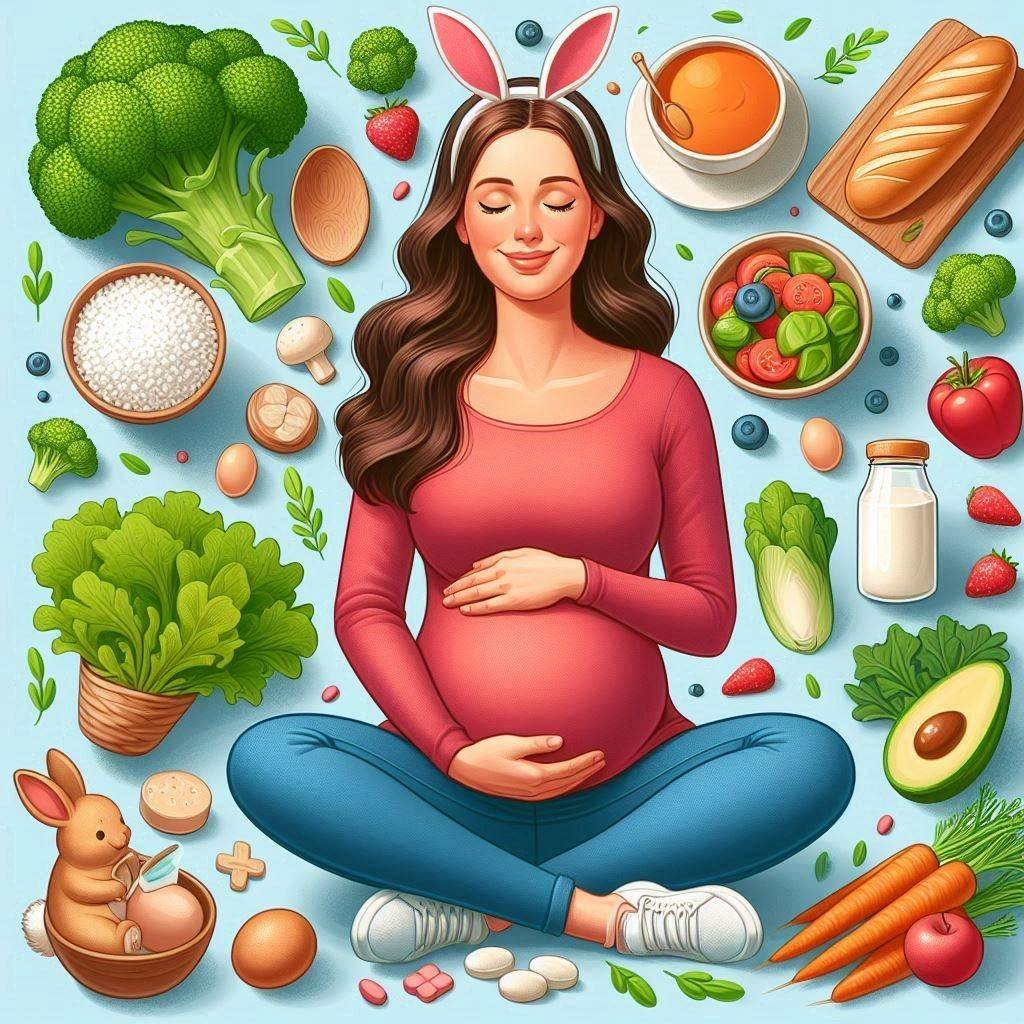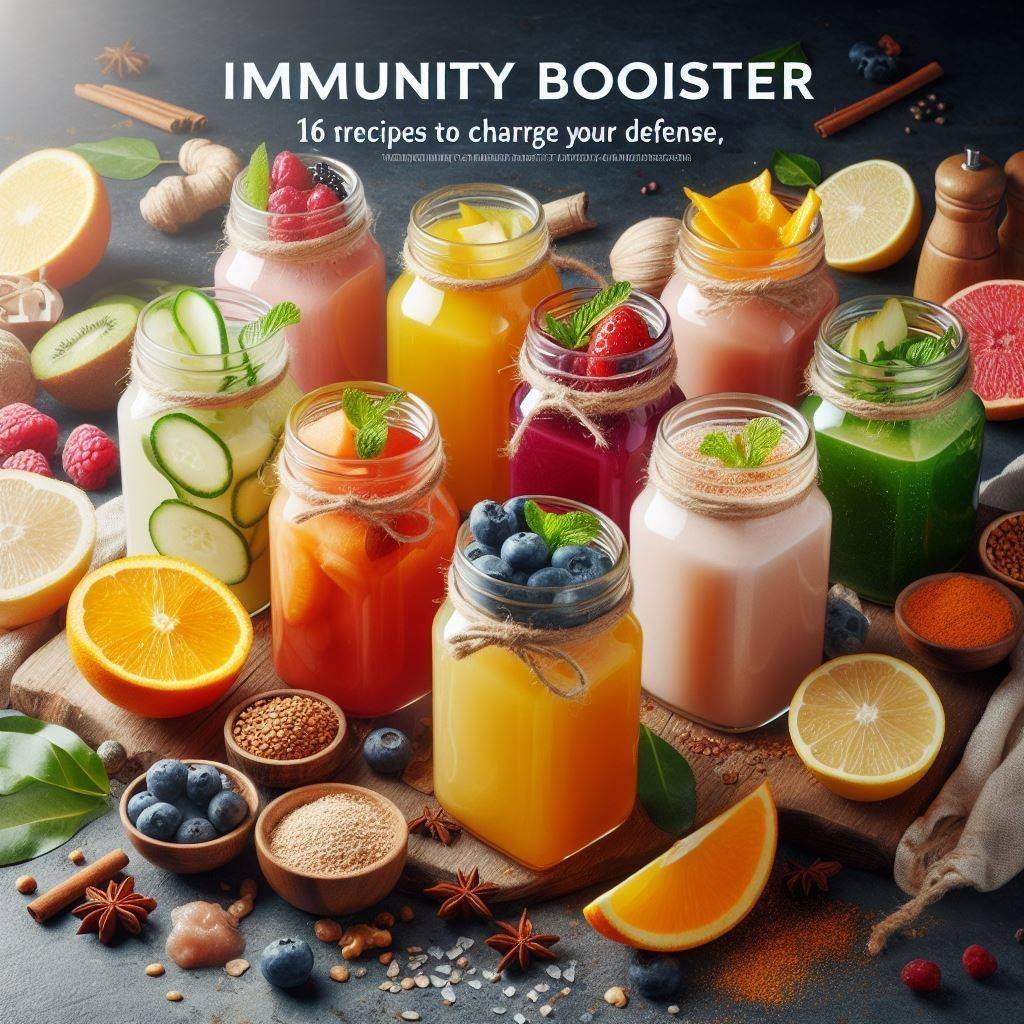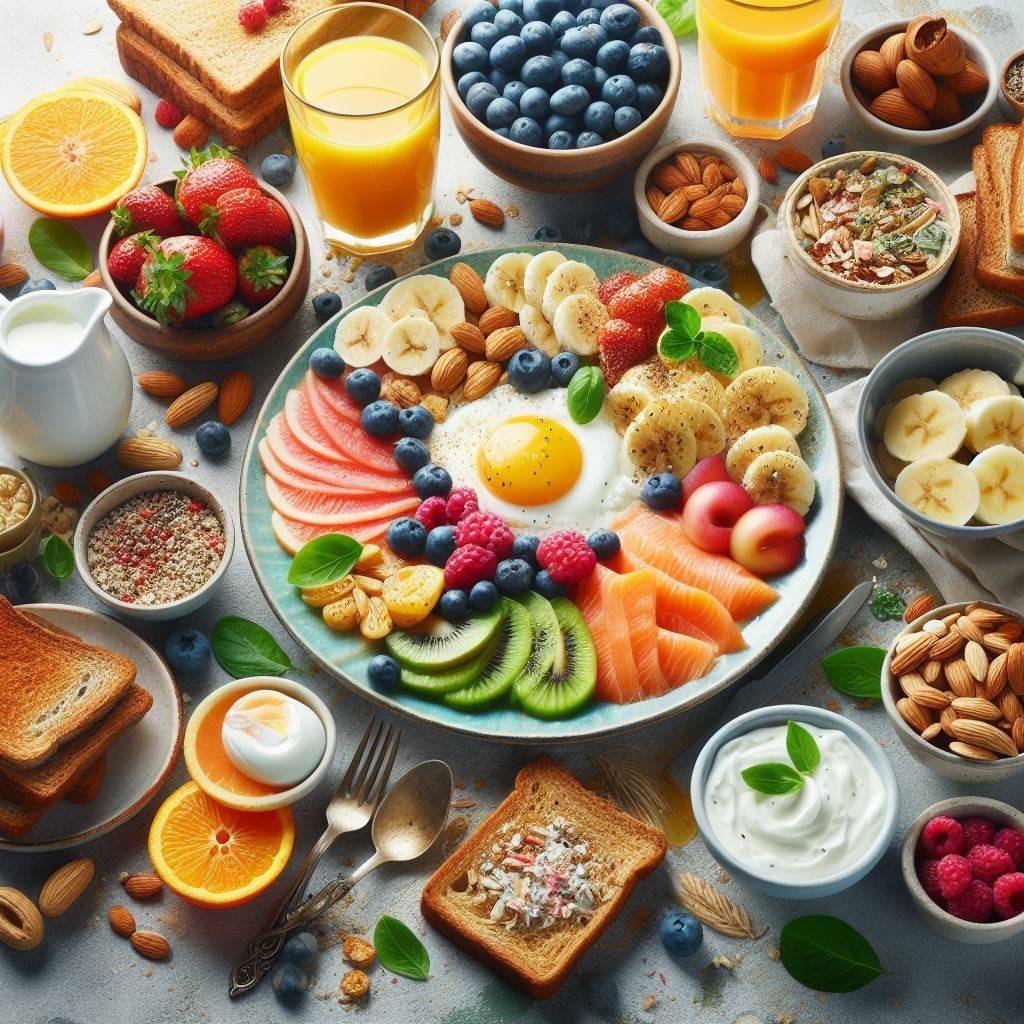What foods are high in iron for pregnant women?
Discover what foods are high in iron for pregnant women in 2024. Boost your iron intake with top sources to ensure a healthy pregnancy and support your baby’s growth.
Foods are high in iron for pregnant women to support the growing baby, a woman needs proper nutrients during pregnancy. One of the key nutrients required during pregnancy is iron. Red blood cells, which move oxygen throughout the body, require iron. Pregnant women need more iron to promote baby growth. Pregnant women often take iron supplements because food alone cannot meet this higher demand.

Why is iron important for pregnancy?
Iron is a crucial nutrient during pregnancy, as it plays several important roles in maternal and fetal health. Here are some of the most important reasons why iron is needed during pregnancy:
- Supports fetal growth and development
Iron is essential for the growth and development of the fetus. Hemoglobin, the protein in red blood cells that carries oxygen to organs, requires it. Fetal growth and development require a significant amount of oxygen, making it crucial for pregnant women to consume enough iron to support the needs of their growing babies.
- Helps prevent anemia
Anemia, a condition in which the body lacks enough healthy red blood cells, is common during pregnancy. Iron deficiency anemia can lead to several complications, including preterm birth, low birth weight, and maternal mortality. Consuming enough iron can help prevent anemia during pregnancy and ensure the mother and baby are healthy.
- Supports maternal blood volume expansion
A woman’s blood volume increases to support the growing fetus during pregnancy. Iron is needed to produce the additional red blood cells needed to support this expansion. Consuming enough iron can help ensure that the mother’s body can meet the demands of her changing blood volume during pregnancy. Iron plays a critical role in maternal and fetal health during pregnancy. Ensuring adequate iron intake can help support fetal growth and development, prevent anemia, and support maternal blood volume expansion.
What happens if you have low levels of iron during pregnancy?
Iron shortage during pregnancy can cause many problems for mom and baby. Here are some of the potential consequences of having low levels of iron during pregnancy:
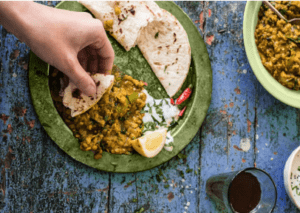
- Preterm and low birth weight risk
Pregnancy-related iron deficiency anemia can cause premature birth and low birth weight. Low birth weight is under 5 pounds, 8 ounces, and premature birth is before 37 weeks. These disorders can cause long-term baby health issues.
- Maternal fatigue and weakness
Iron deficiency can cause fatigue, weakness, and shortness of breath, making it difficult for pregnant women to keep up with the demands of daily life. These symptoms can be especially challenging during pregnancy when women’s bodies are already under significant physical stress.
- Postpartum depression
Pregnancy-induced iron deficiency may raise postpartum depression risk. Postpartum sadness can harm both the mother and the baby.
- Delayed fetal brain development
Iron is essential for proper brain development, and iron deficiency during pregnancy can lead to delayed fetal brain development. This can have long-term consequences for the baby’s cognitive and behavioural development. Overall, pregnant women need to ensure that they’re getting enough iron to avoid these potential complications. If you’re concerned about your iron levels during pregnancy, consult your healthcare provider for guidance and support.
How much iron do pregnant people need?
Pregnant women require more iron than non-pregnant women to support fetal growth and development, maternal blood volume expansion, and other physiological changes during pregnancy. Pregnant women’s recommended daily iron intake is 27 milligrams (mg) per day. This is double the recommended daily intake for non-pregnant women, which is 18 mg per day. It’s important to note that not all pregnant women will require the same amount of iron. Women at a higher risk of iron deficiency anemia, such as those carrying multiples, may require higher doses of iron. Additionally, women who were already iron deficient before becoming pregnant may also require higher doses of iron to meet their body’s needs.
Your healthcare provider can help you determine how much iron you need during pregnancy based on your health status and any risk factors you may have. They may recommend regular blood tests to monitor your iron levels and adjust your iron supplementation. It’s also important to note that consuming too much iron can harm both the mother and the baby. Always follow your healthcare provider’s recommendations for iron supplementation and avoid taking iron supplements without first consulting with your healthcare provider.
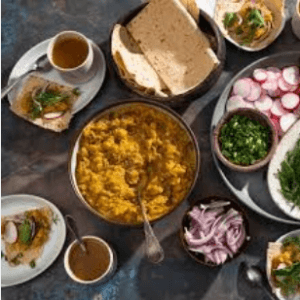
Foods are high in iron for pregnant women.
it’s also important to ensure you’re consuming foods high in iron to maximize the nutrient’s absorption and minimize the risk of deficiency. In this blog post, we’ll explore some of the top foods high in iron for pregnant women. We’ll cover animal- and plant-based sources of iron, fortified foods, and supplements. We’ll also share tips for increasing iron absorption and meeting your daily requirements. With this information, you’ll be better equipped to support your body and your baby’s health during this crucial time.
Animal-based sources of iron
Animal-based foods are a rich source of iron, particularly heme iron, which absorbs better than plant-based non-heme iron. Pregnant women should eat these animal-based iron sources:
Red meat
Red meat, such as beef, lamb, and pork, is one of the richest sources of iron. A 3-ounce serving of beef contains approximately 2.6 milligrams of iron, about 15% of pregnant women’s recommended daily intake. However, it’s important to choose lean cuts of meat to minimize saturated fat intake, which can increase the risk of heart disease. Examples of lean cuts include sirloin, flank steak, and 95% lean ground beef.
- Poultry
Poultry, such as chicken and turkey, is another source of iron. A 3-ounce serving of roasted chicken contains approximately 1.1 milligrams of iron, about 6% of pregnant women’s recommended daily intake. When choosing poultry, it’s important to remove the skin and choose lean cuts, such as chicken breast or turkey breast, to minimize saturated fat intake.
- Fish and seafood
Fish and seafood are also excellent sources of iron, particularly shellfish such as clams, oysters, and mussels. Cooked clams contain 23.8 milligrams of iron, more than pregnant women need. Other iron-rich seafood options include canned light tuna, which contains approximately 1.3 milligrams of iron per 3-ounce serving, and shrimp, which contains approximately 0.8 milligrams of iron per 3-ounce serving. However, pregnant women should be cautious when consuming fish and seafood because of the risk of mercury contamination.
Avoid shark, swordfish, and king mackerel, and limit lower-mercury fish to 2-3 servings per week. Incorporating animal-based sources of iron into your diet can help ensure you meet your daily requirements. However, it’s important to balance these foods with plant-based sources of iron and to choose lean cuts of meat to minimize saturated fat intake.
Plant-based foods are sources of iron.
Fruits, veggies, and legumes are excellent sources of non-heme iron. Pregnant women can get much iron from non-heme iron, which is harder to ingest. Iron-rich plants include:
- Dark leafy greens
Dark leafy greens, such as spinach, kale, and collard greens, are excellent sources of iron. A 1-cup serving of cooked spinach contains approximately 6.4 milligrams of iron, about 36% of pregnant women’s recommended daily intake. Other iron-rich leafy greens include Swiss chard, turnip, and beet greens. These foods can be incorporated into salads, smoothies, cooked soups, and stews.
- Legumes
Legumes, such as beans, lentils, and chickpeas, are another successful source of iron. A 1-cup serving of cooked lentils contains approximately 6.6 milligrams of iron, about 37% of pregnant women’s recommended daily intake. Other iron-rich legumes include black beans, kidney beans, and navy beans. These foods can be incorporated into various dishes, such as salads, soups, stews, and bean-based dips, such as hummus.
- Nuts and seeds
Nuts and seeds, such as pumpkin seeds, cashews, and quinoa, are also excellent sources of iron. A 1-ounce serving of pumpkin seeds contains approximately 2.5 milligrams of iron, about 14% of pregnant women’s recommended daily intake. Other iron-rich nuts and seeds include almonds, sunflowers, and sesame seeds. These foods can be incorporated into various dishes, such as salads, granola bars, and nut-based spreads like almond butter. Incorporating plant-based sources of iron into your diet can help ensure you meet your daily requirements. However, it’s important to pair these foods with sources of vitamin C, which can enhance iron absorption, and to be mindful of foods that can inhibit iron absorption, such as coffee and tea.
Fortified foods and supplements
Besides natural sources of iron, fortified foods and supplements can help pregnant women meet their daily iron requirements. Here are some options to consider:
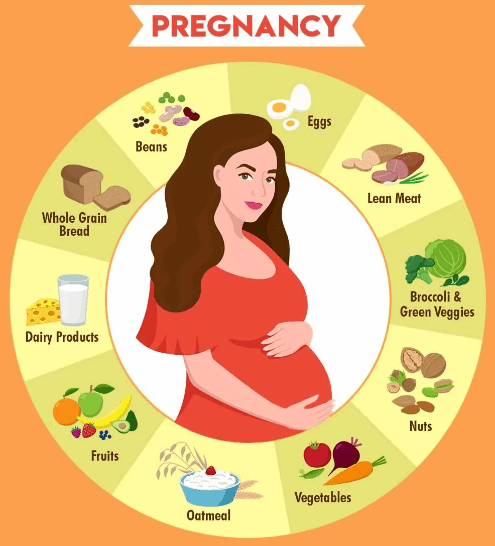
Iron-fortified cereals and loaves of bread
Many breakfast cereals and bread are fortified with iron, making them a convenient and easy way to increase your iron intake. Look for cereals and loaves of bread that are fortified with iron and other essential nutrients, and aim for brands that are low in sugar and high in fiber.
- Iron supplements
Iron supplements are often recommended for pregnant women who have difficulty meeting their iron requirements through diet alone. Iron supplements, such as tablets, capsules, and liquid drops, can come in different forms. Talking to your healthcare provider before taking any iron supplements is important, as too much iron can be harmful. Your healthcare provider can help you determine the right dosage and type of supplement for your individual needs.
- Prenatal vitamins
Many prenatal vitamins contain iron and other essential nutrients for pregnancy, such as folic acid and calcium. Choosing a high-quality prenatal vitamin that contains the appropriate iron levels for pregnant women is important. Again, talking to your healthcare provider before starting any new supplements or prenatal vitamins is important, as they can help you choose the right ones for your needs. Incorporating fortified foods and supplements can be a helpful addition to a healthy, balanced diet to ensure you meet your daily iron requirements during pregnancy. However, it’s important to remember that natural iron sources should still be your diet’s focus.
Tips for increasing iron absorption

While incorporating iron-rich foods into your diet is important, there are also some tips to keep in mind that can help increase your body’s absorption of iron.
Here are some tips to consider:
Vitamin C with iron-rich diets
Vitamin C increases plant-based iron uptake. Try pairing iron-rich foods, such as spinach or lentils, with vitamin C-rich foods, like citrus fruits, bell peppers, or strawberries.
- Avoid drinking tea or coffee with meals.
Tannins found in tea and coffee can inhibit iron absorption from plant-based foods. Avoid drinking tea or coffee with meals, and opt for water or other non-caffeinated beverages.
- Cook in cast iron
Cooking with cast iron cookware can increase the iron content of your food. When cooking acidic foods, such as tomato sauce, the acid can leach some iron from the cookware into the food. This can be a helpful way to increase your iron intake, particularly if you’re consuming plant-based foods.
- Avoid consuming calcium-rich foods with iron-rich foods
Calcium can inhibit the absorption of iron from both plant-based and animal-based sources. Avoid consuming calcium-rich foods, such as dairy products, with iron-rich foods. Instead, aim to consume calcium-rich foods at separate times of the day. These tips can help maximize your body’s iron absorption from food. By pairing iron-rich foods with vitamin C, avoiding drinking tea or coffee with meals, cooking with cast iron, and avoiding consuming calcium-rich foods with iron-rich foods, you can help ensure that you’re getting the most out of the iron-rich foods in your diet.
FAQs: Best foods are high in iron for pregnant women
What foods are high in iron for pregnant women?
Iron-rich foods for pregnant women include lean meats, beans, spinach, fortified cereals, and nuts.
What foods are the highest in iron for pregnancy?
For the highest iron content during pregnancy, choose liver, red meat, fortified cereals, and pumpkin seeds.
Which fruit is best for iron in pregnancy?
Dried apricots are the best fruit for iron during pregnancy. Prunes and raisins are also good choices.
What fruit is high in iron?
Dried fruits like apricots, prunes, and raisins are high in iron.
How can I raise my iron levels quickly while pregnant?
Boost iron levels by eating iron-rich foods, adding vitamin C-rich foods, avoiding tea and coffee with meals, and following your doctor’s advice.
Conclusion: Best foods are high in iron for pregnant women
Pregnant women must meet their daily iron needs. Animal- and plant-based iron-rich meals can help you meet your daily iron needs. Fortified meals and supplements can also help you get enough iron. Before starting any new supplements or prenatal vitamins, chat with your doctor to find the right ones for you. Iron absorption can be maximized by pairing iron-rich meals with vitamin C and cooking with cast iron. Pregnant women can meet their iron needs with a healthy diet and some planning. Discuss your iron diet during pregnancy with your doctor.

